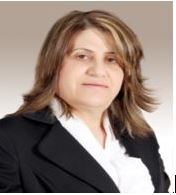
Library Director; Laila Al-Zawaida
The library of Ajloun National University was established with the university’s inception in 2009. Alongside other university facilities, the library contributes to achieving the objectives and mission of the university by providing the best possible services to the faculty, administrative staff, and students. The library offers a wide range of resources, including both print and electronic information materials, and ensures all necessary technical procedures are completed to make these resources available for use. Additionally, it provides essential services to enable all its users to access the electronic information sources subscribed to by the university. Through these efforts, the library aims to empower the university in achieving its educational, research, and community service roles.
By supporting and serving the educational process, the library strives to meet the needs of both faculty members and students across the university’s various faculties.
The library covers an area of 1,654 square meters and contains 33,859 books in both Arabic and English across various fields of knowledge. It also includes 24,700 titles in both Arabic and English, and 99 print periodicals in Arabic and English. Additionally, the library subscribes to the EBSCO database, which contains 192,600 titles in both English and Arabic.
The library is also equipped with a computer lab that includes 20 computers. It follows the Library of Congress Classification system.
The library is open from Saturday to Wednesday, welcoming students, researchers, and all user categories from 8 am until the end of official working hours.
We assure you that we will do our best to continue developing information resources through various ways, organizing them, and making them accessible and retrievable for our valued library visitors.
Distinguished library services and providing knowledge accessible to everyone in accordance with standardized rules and modern methods, based on advanced technology to support research and teaching.
The library takes effective measures to become a fully included information center through planning, acquisition, and provision of all necessary resources, both printed and electronic. This supports the university’s academic and research programs as well as the community. The library also coordinates with faculty members to enable students to acquire and develop essential skills for academic achievements.
1-Library instructions are to provide services to beneficiaries and to preserve learning resources.
2-Instructions No. (1) of 2011.
3-Instructions for public services at Ajloun National Library
Article (1):These instructions are called (instructions for public services in the library of Ajloun National University) and are effective as of the date of approval by Professor Dr. President of the University.
Article (2):Library materials are purchased based on the suggestions of faculty members under special forms provided by the library.
Article (3):The library purchases two copies of each book. A minimum of three copies can be purchased if the library director or faculty member finds it necessary.
Article (4):The library director can purchase a maximum of ten copies of books written by university staff and a maximum of five copies by Jordanian authors for gifting and exchange purposes.
Article (5):Subscription is made to paper periodicals and global databases as well as purchasing Previous issues of periodicals in coordination between the library and the concerned authorities at the university.
Article (6):a. The faculty member may borrow a maximum of ten books for one semester for every book.
Article (7):The borrowing of any book can be renewed if it is not required for someone else.
Article (8):a. Books are placed on the reservation shelf at the demand of faculty members or the library.
Article (9): a. If the borrower fails to return the book on time, he will be fined (one hundred fifty penny) for each day of delay, provided that the fine does not exceed ten dinars.
Article (10): a. If the borrower loses a book, She /he will be fined twice its value, in addition to the cost of binding and delay penalties, if any b. If the borrower loses part of a set of parts, She/he will be fined twice its value. If it is not possible
to purchase the missing part the borrower is fined twice the price of the whole parts, plus the binding costs
and fines for delay, if any.
Article (11): If the borrowed library material is damaged, the borrower is fined four times its price in addition to the binding costs. The library has the right to report him/her in order to take the necessary legal actions.
Article (12): a. References and current issues of periodicals and special collections may not be borrowed Such as rare books, manuscripts, documents, university theses, and audio and visual materials .
Article (13):
Article (15): If a person misbehaves in violation of library instructions, the library director may prevent him/her from entering the library and forbid him from borrowing any library material for a period not exceeding one semester.
Article (16):No one has the right to display statement ,announcement or advertisment anywhere in the library except with the prior permission of the library director in coordination with the concerned authorities at the university.
Article (17): Library visitors should show their books and other library materials to the entrance controller when they leave the library.
Article (18): a- Eating, drinking and smoking are not allowed in reading rooms.
Article (26): The library issues instructions for gifting books and organizes the exchange of publications between the library and other university libraries or scientific institutions.
Dealing ethics:
Student behavior in the library and information sources.